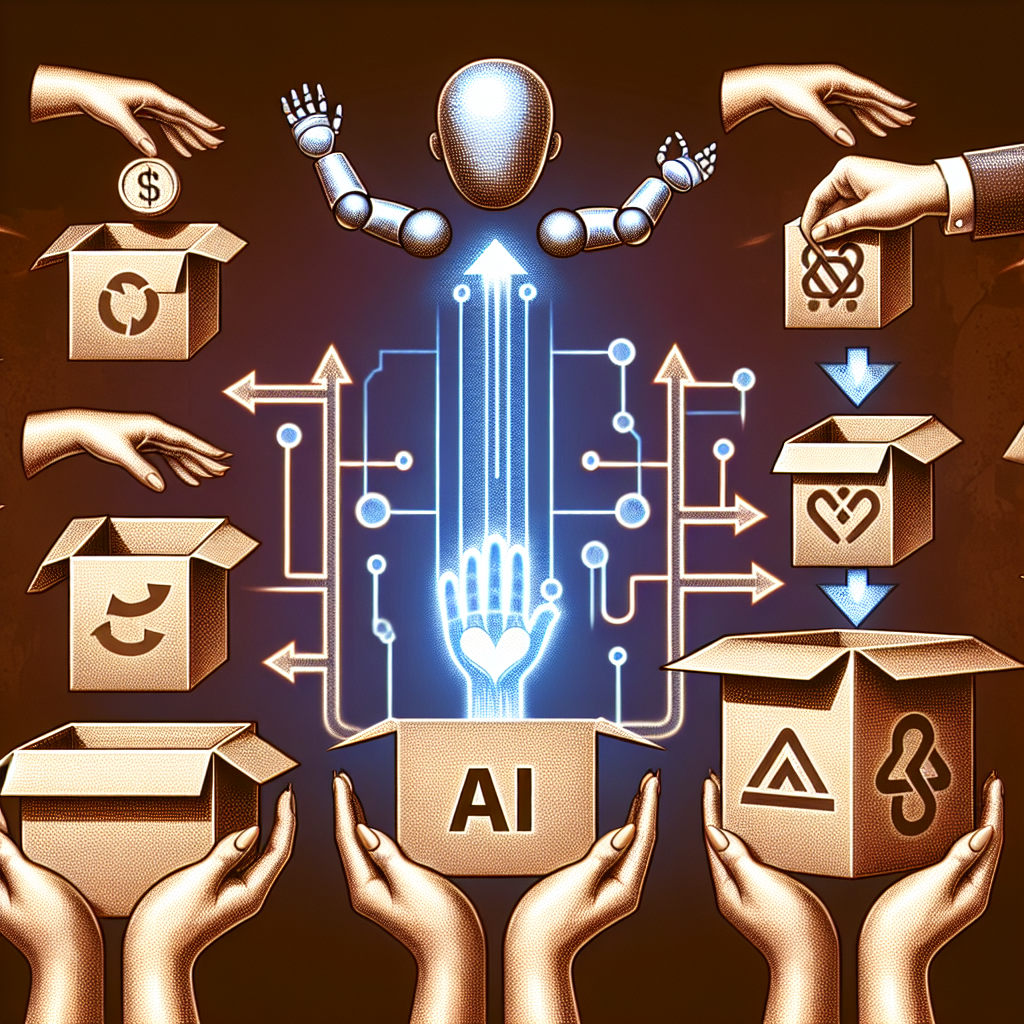The Evolution of Philanthropy: AI’s Impact on Giving
Philanthropy has been a fundamental part of society for centuries, with individuals and organizations donating time, money, and resources to help those in need. In recent years, the landscape of philanthropy has been evolving rapidly, with advancements in technology playing a significant role in shaping the way people give back to their communities.
One of the most impactful technological advancements in recent years is artificial intelligence (AI). AI has the potential to revolutionize the way philanthropy is conducted, making it more efficient, effective, and transparent. In this article, we will explore the evolution of philanthropy and the impact of AI on giving.
The Evolution of Philanthropy
Philanthropy has a long history, dating back to ancient civilizations where individuals and organizations would donate to help the less fortunate. Over time, philanthropy has evolved, becoming more organized and structured. In the 19th and 20th centuries, philanthropic organizations such as the Rockefeller Foundation and the Bill and Melinda Gates Foundation were established, leading to a more systematic approach to giving.
In recent years, philanthropy has become more democratized, with individuals and organizations of all sizes getting involved in charitable giving. The rise of online platforms and social media has made it easier for people to donate to causes they care about, leading to a more decentralized approach to philanthropy.
The Impact of AI on Giving
Artificial intelligence has the potential to transform the way philanthropy is conducted, making it more efficient and effective. AI can help philanthropic organizations identify and prioritize the most pressing issues, target resources more effectively, and measure the impact of their interventions.
One of the key ways AI is impacting philanthropy is through data analysis. AI can process vast amounts of data in real-time, allowing organizations to identify trends and patterns that were previously impossible to detect. This data-driven approach can help philanthropic organizations make more informed decisions about where to allocate resources and how to measure the impact of their interventions.
AI can also help philanthropic organizations streamline their operations. For example, AI-powered chatbots can handle donor inquiries and provide information about the organization’s programs and initiatives. This can free up staff time to focus on more strategic tasks, such as developing new fundraising campaigns or evaluating the impact of existing programs.
Another way AI is impacting philanthropy is through predictive analytics. AI algorithms can analyze past giving patterns to predict future trends and identify potential donors who are most likely to support a particular cause. This targeted approach can help organizations maximize the impact of their fundraising efforts and increase the likelihood of success.
FAQs
Q: How is AI being used in fundraising?
A: AI is being used in fundraising in a variety of ways, including predictive analytics, data analysis, and chatbots. AI algorithms can analyze past giving patterns to predict future trends and identify potential donors who are most likely to support a particular cause. Data analysis can help organizations identify trends and patterns that were previously impossible to detect, while chatbots can handle donor inquiries and provide information about the organization’s programs and initiatives.
Q: How is AI impacting the measurement of impact in philanthropy?
A: AI is impacting the measurement of impact in philanthropy by allowing organizations to track and evaluate the effectiveness of their interventions in real-time. AI can process vast amounts of data to measure the impact of programs and initiatives, identify areas for improvement, and make more informed decisions about where to allocate resources.
Q: What are the ethical implications of using AI in philanthropy?
A: There are ethical implications to consider when using AI in philanthropy, including issues related to data privacy, bias, and transparency. Organizations must ensure that they are using AI in a responsible and ethical manner, taking steps to protect donor information, mitigate bias in algorithms, and be transparent about how AI is being used to make decisions.
In conclusion, the evolution of philanthropy is being shaped by advancements in technology, with AI playing a significant role in transforming the way people give back to their communities. By leveraging AI to streamline operations, analyze data, and target resources more effectively, philanthropic organizations can maximize their impact and make a positive difference in the world.

